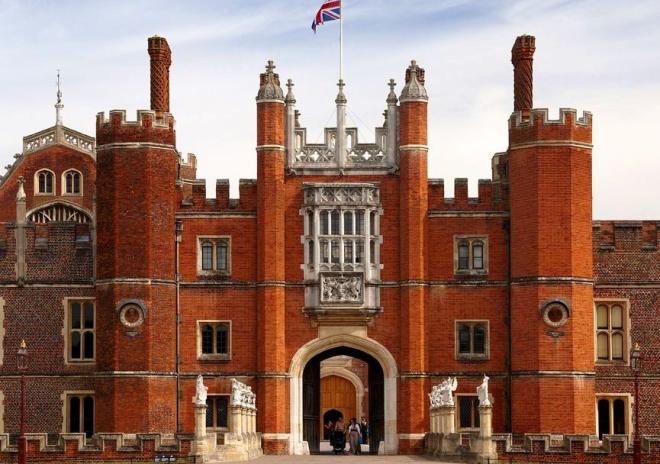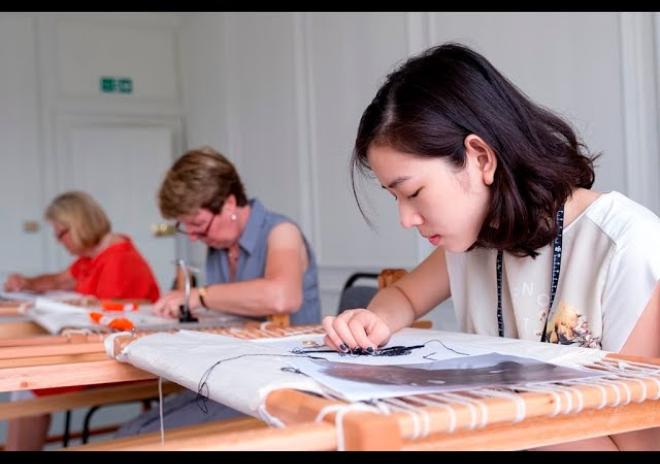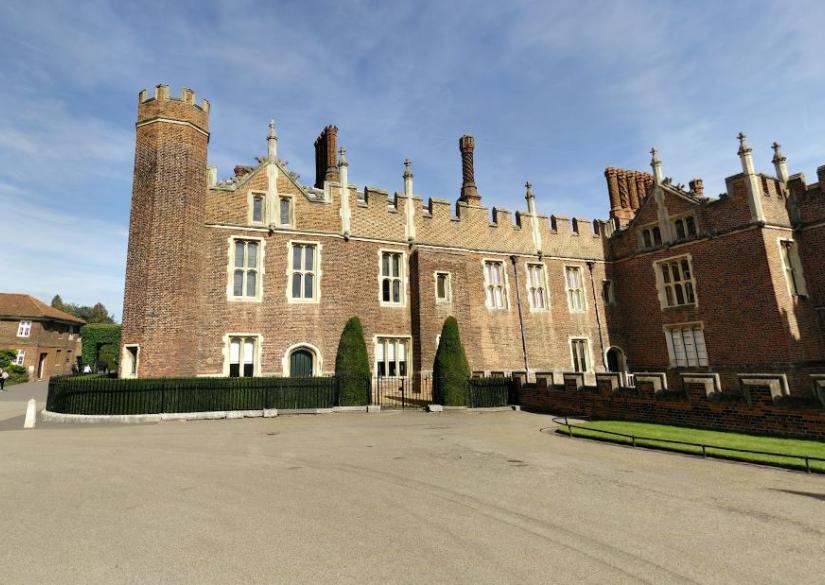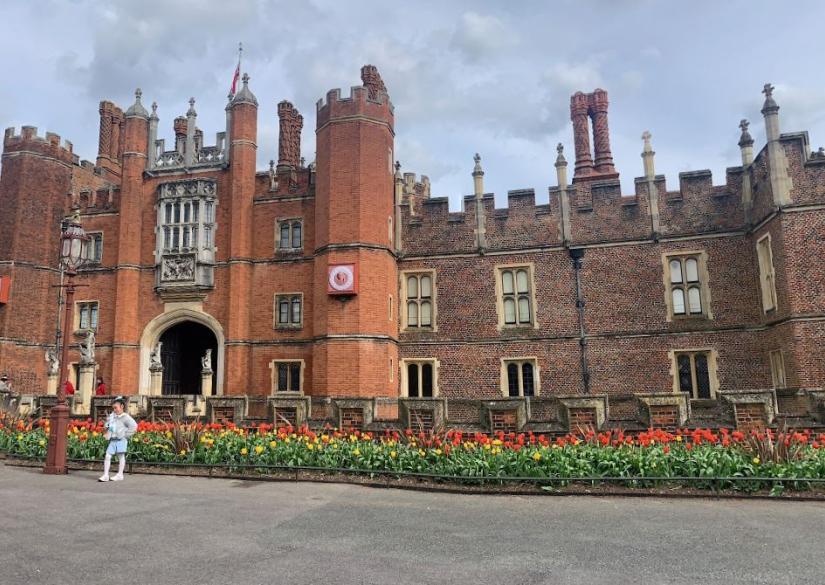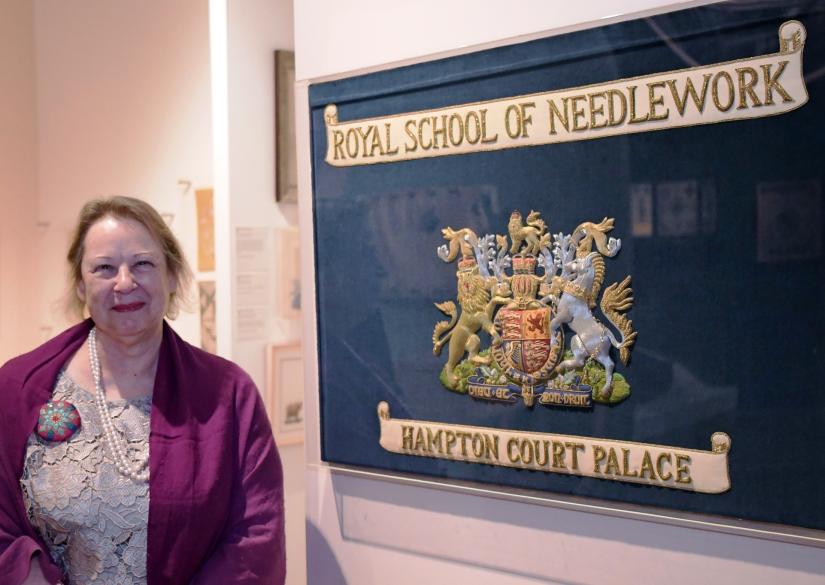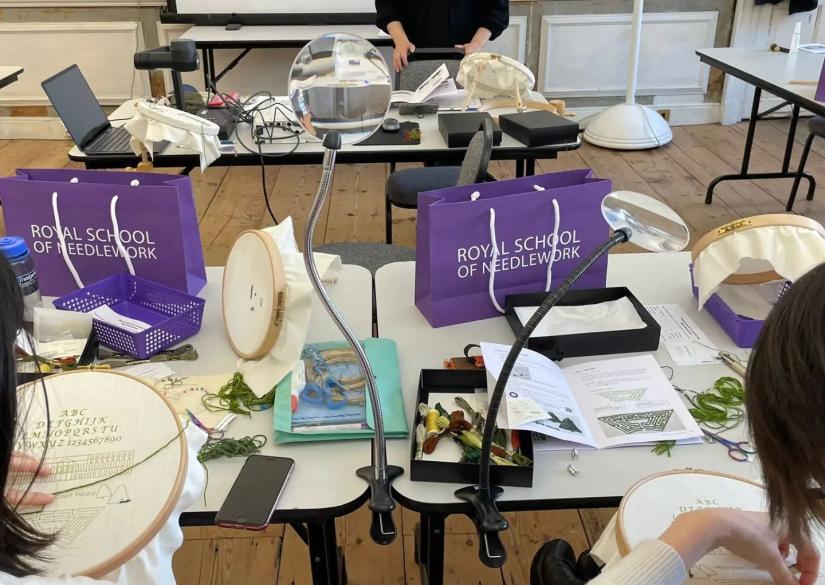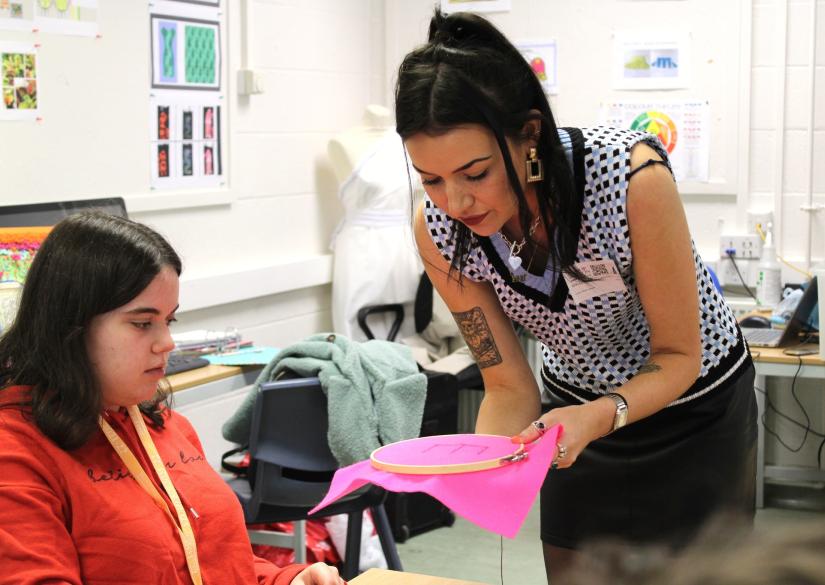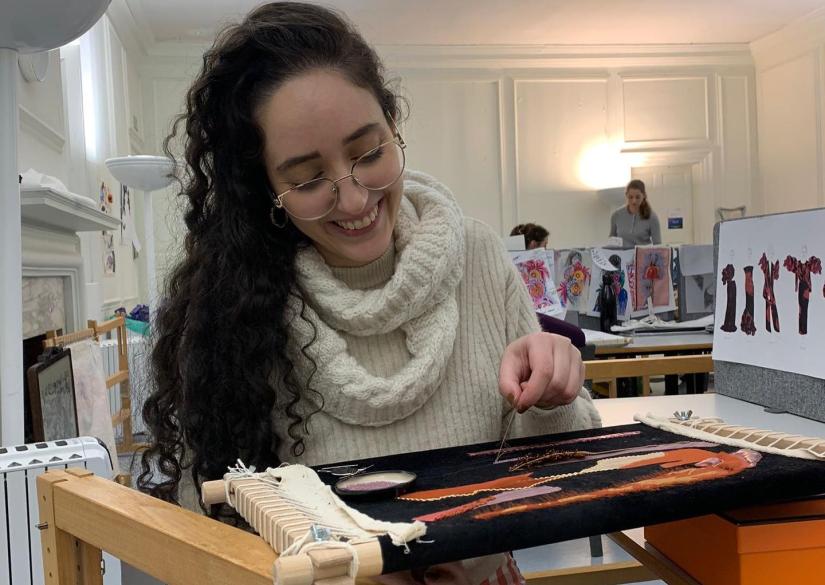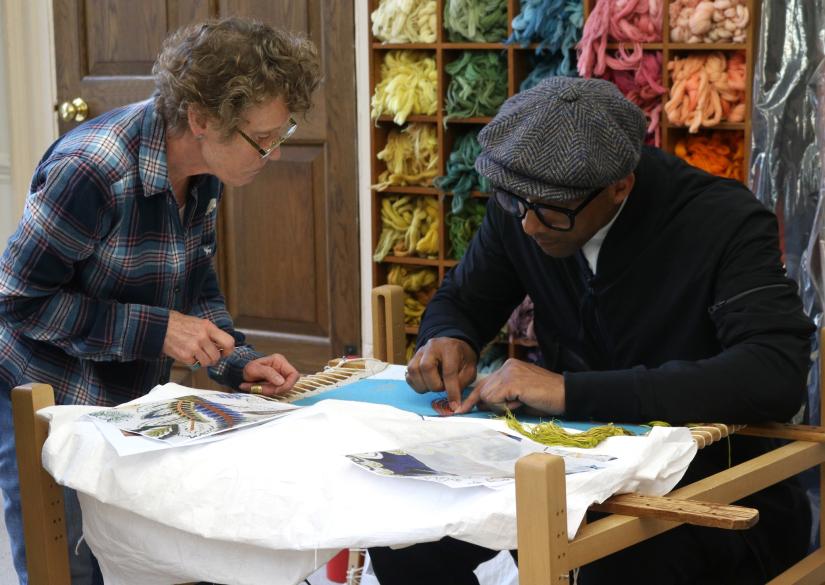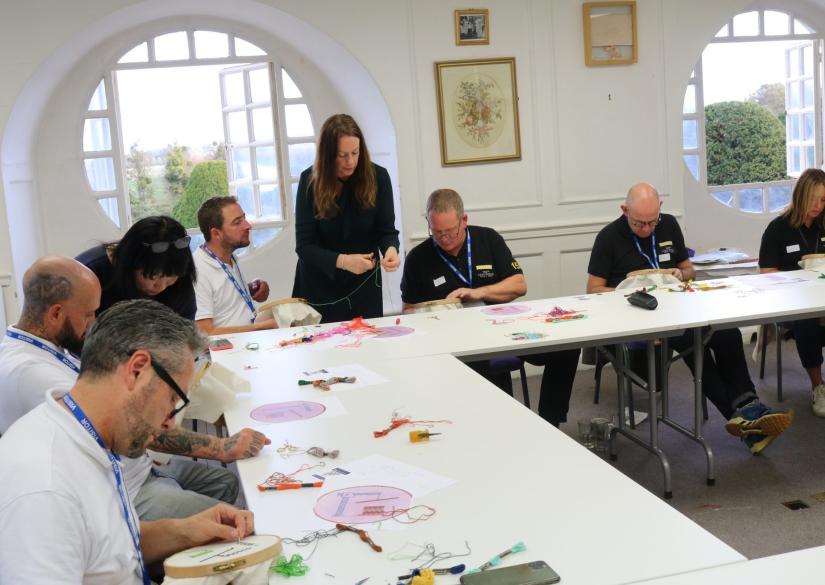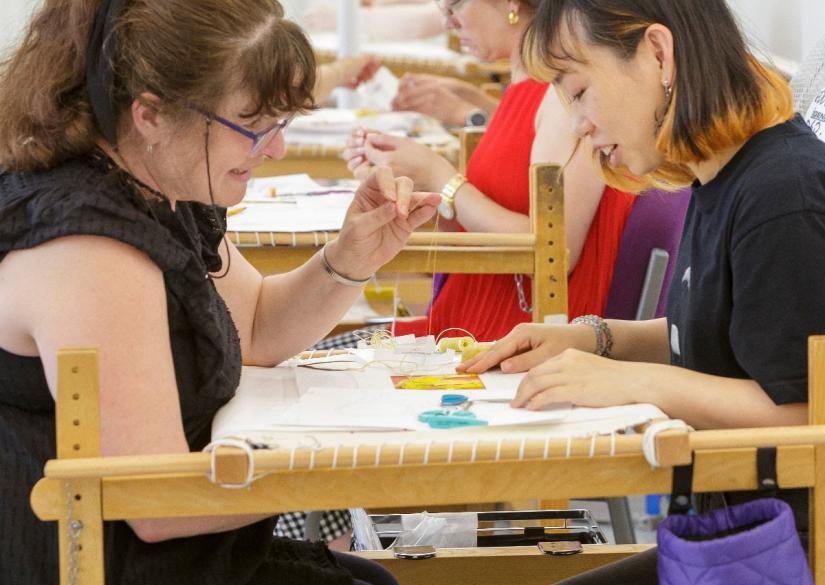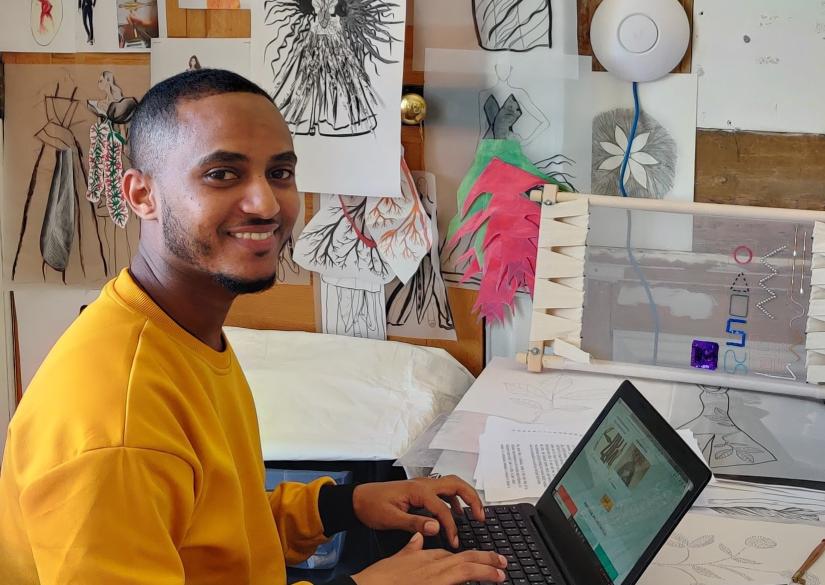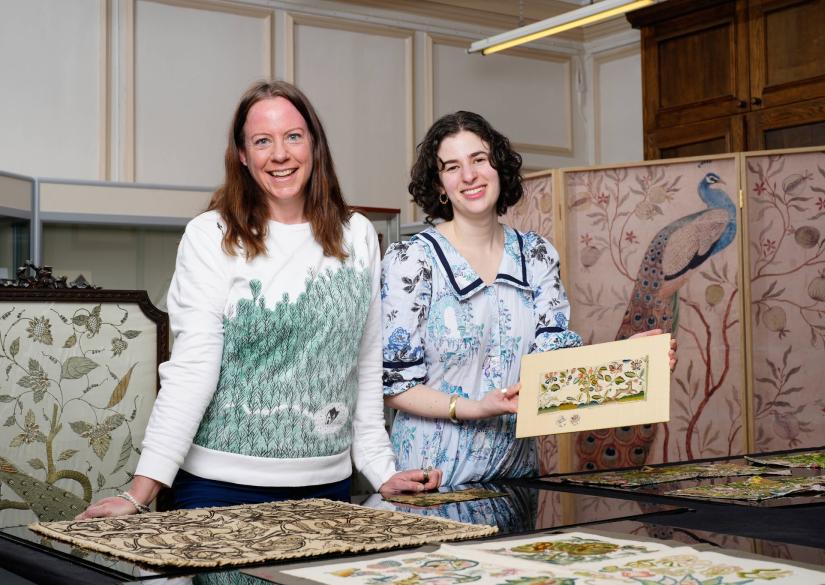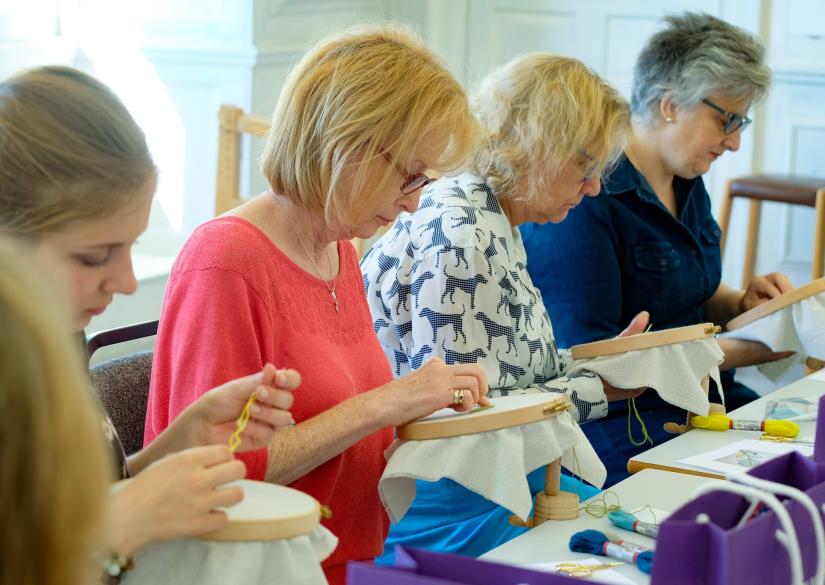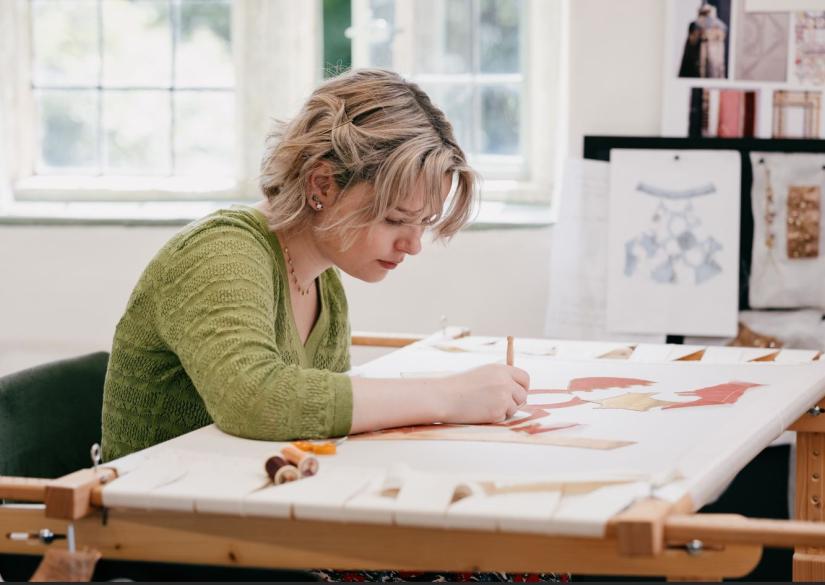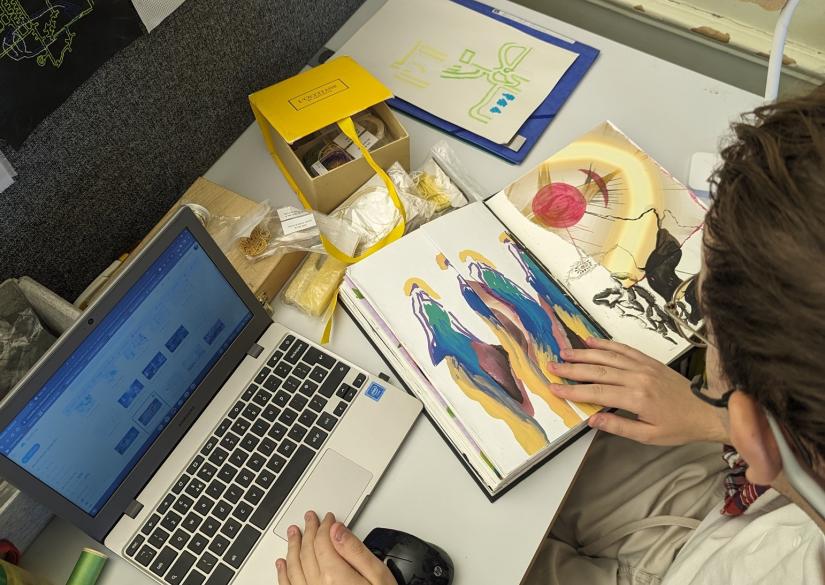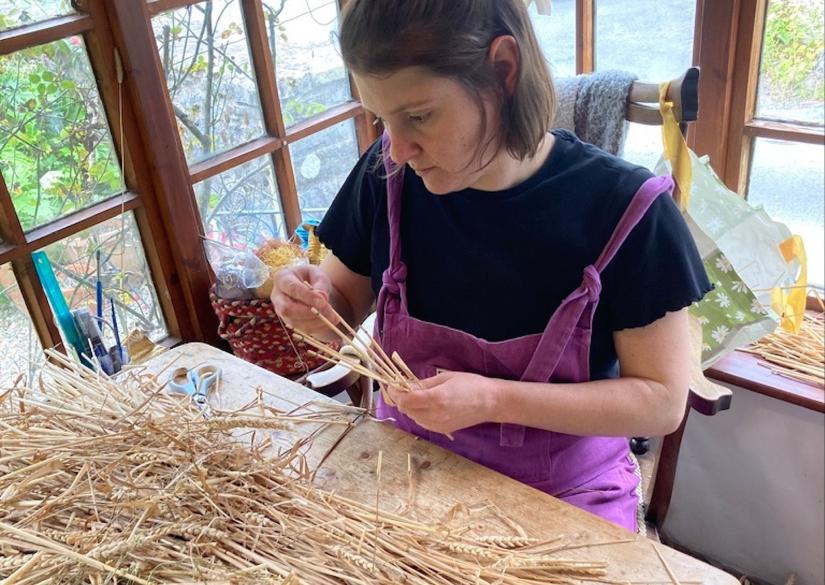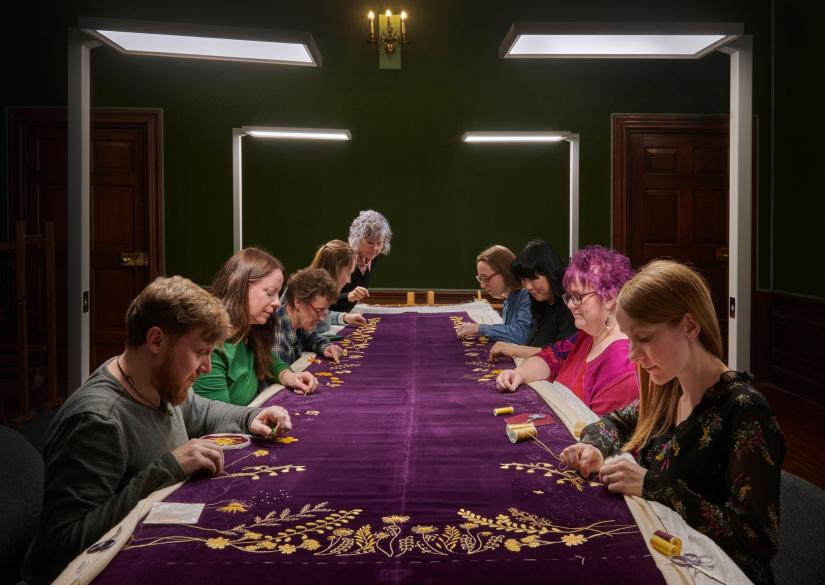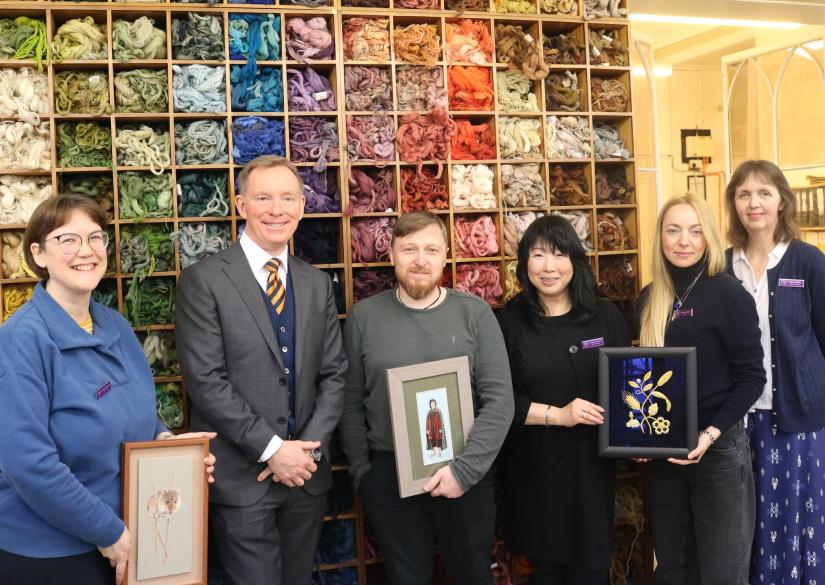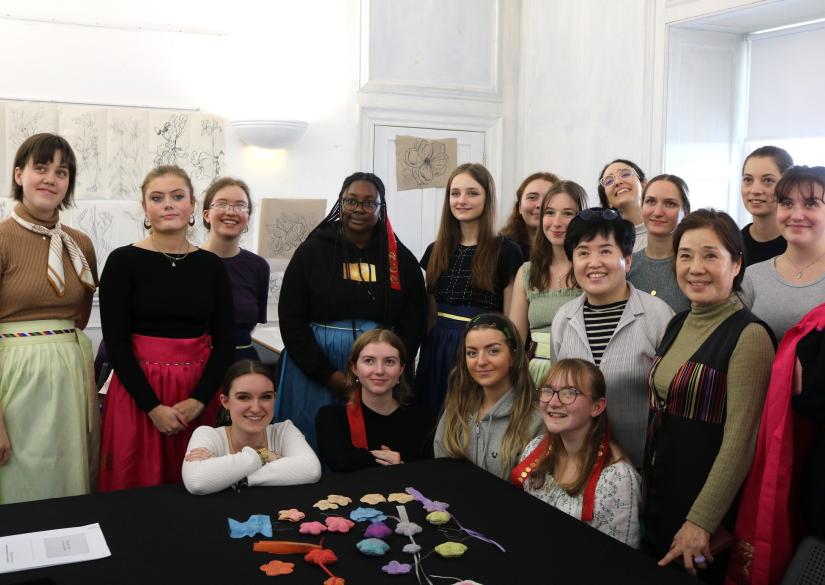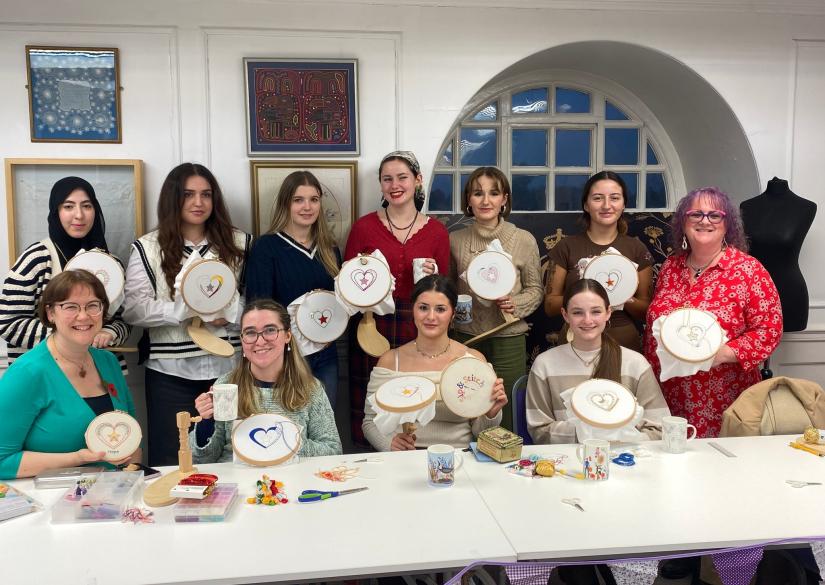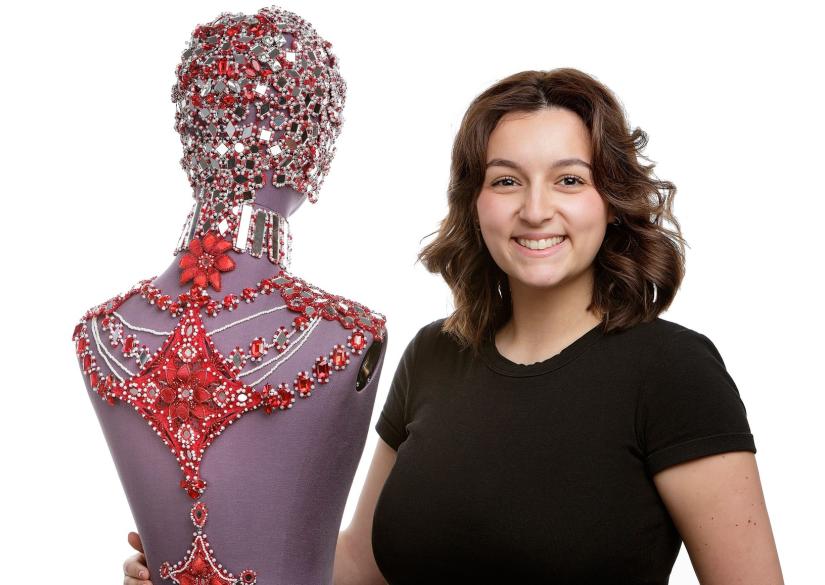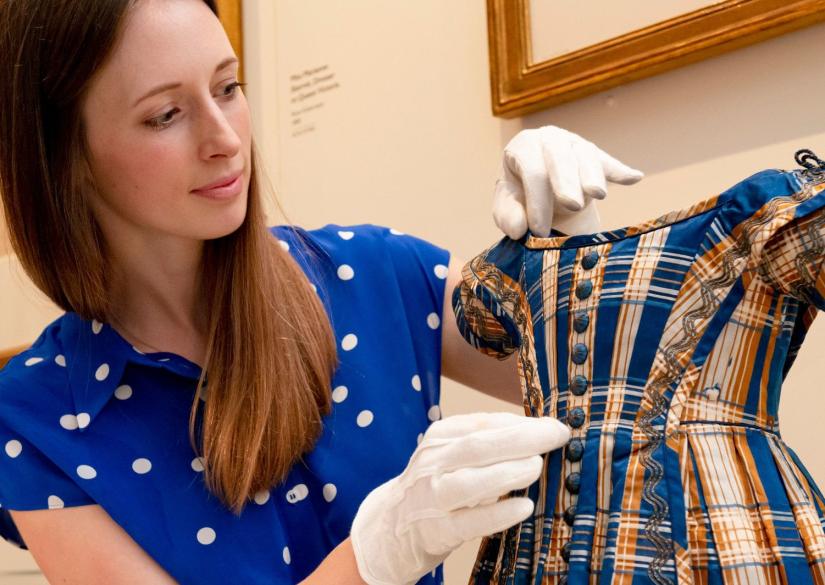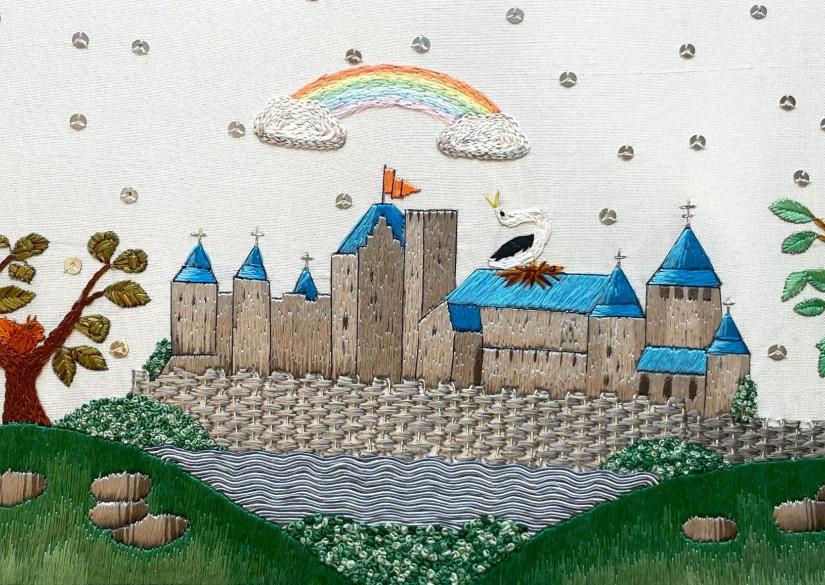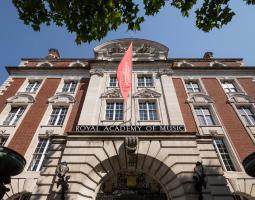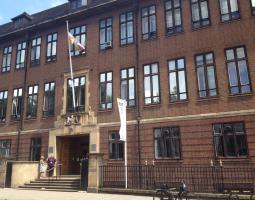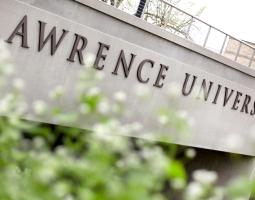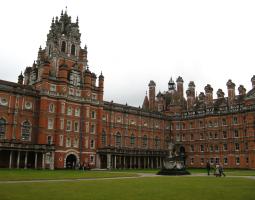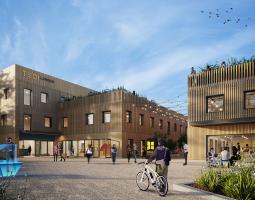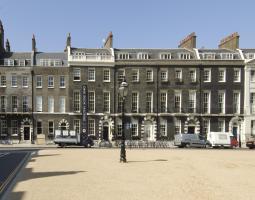Royal School of Needlework
Programs and prices, tuition fees in Royal School of Needlework
Undergraduate Program: Hand Embroidery
- Age of students – from 18 years old,
- The period of study is three years.
The school's only undergraduate program taught in conjunction with Kingston University London offers students an immersive experience in the world of crafts through theoretical classes, workshops and many hours of practice in specialized studios. During the course of three years, students will study a range of modules, such as drawing for design and the practice of hand embroidery. From year to year, the modules are expanded, allowing students to deepen their knowledge and develop the skills necessary for success.
Studying is conducted in small groups in the studios of the RNS campus. The curriculum provides for the creation of a dozen individual works, during which students will be able to implement their own ideas and reveal their talent, supplement their portfolio.
In addition, in the main modules, students attend classes on Future Skills — the development of skills that are most valued by employers: problem solving, digital competence, adaptability.
Professional Embroidery Tutor Program
- Age of students – from 18 years old,
- The period of study is three years.
The Professional Embroidery Teacher Preparation Program is a course for those who want to make a career as a specialist who passes on their knowledge.
Under the guidance of experienced RSN teachers, students will undergo a three-year preparation in technical hand embroidery: classes in art and design, business skills, and opportunities for teaching practice. The course will provide all the necessary knowledge to become a successful teacher and embroiderer.
The curriculum covers three trimesters each year with breaks for Christmas, Easter and summer + a week of vacation in each semester. During the semester, the academic week is structured as follows:
- 10 hours (two fixed days) in a classroom at Hampton Court Palace,
- 25 hours of independent work, including homework and portfolio work.
In addition to the taught classes, students will also work on a portfolio, which must be completed by the end of the studying. It is regularly reviewed by teachers who monitor progress and provide comprehensive support. The portfolio includes the following sections:
- Art and Design – A collection of works done both in the classroom and independently, showing the student's creative development during the course,
- Reading, research and history – For each embroidery technique, its history, development and application will need to be investigated. Students create a collection of their discoveries, which will serve as a useful teaching tool in future work,
- Teaching Practice – During the course, there will be opportunities to assist, demonstrate and teach in a variety of classes, workshops and exhibitions both at Hampton Court Palace and elsewhere. Students need to keep a journal of teaching practice and write reflections on the lessons conducted.
To successfully complete the program, students will also need to complete an AET Level 3 online teaching qualification (this can be done at any time during the three academic years).
Hand Embroidery: Skills and Studies
- Age of students – from 18 years old,
- The duration of studying is from six sessions.
The course is developed by RSN educator Tracy Franklin in 2024, taught at RSN's sister campus, Durham. The studying is skill-based (researching, developing, and trying stitch ideas) and research (learning hand embroidery). The program consists of thematic modules, each of which can be completed separately. For example, the theme of the first module is "Knots", the second is "Twine", and future modules will cover areas such as canvas use, coaching and shading.
Each module has a similar format, which includes the study of traditional methods and techniques, experimenting with new approaches. Students have time to explore stitch, technique, line, texture, color, tone, shape, space, and form in detail. An important part of each module is the study of modern and historical embroidery.
Each module is complete and consists of six sessions that take place over the course of a semester. Studying takes place from 10:00 to 16:00 with a lunch break. There are no compulsory modules, as there is no specific order of their passage.
Certificate and Diploma in Technical Hand Embroidery (C&D)
- Age of students – from 18 years old,
- The studying period is from eight days.
This course teaches students how to embroider to the best of their ability. It consists of three main components: Certificate, Diploma and additional postgraduate techniques. The sequence in which the techniques are studied allows students to gradually develop their skills and gain applied experience, creating an extensive portfolio of work.
The program is taught at Hampton Court Palace in south-west London, in Bristol, Rugby, Durham and Glasgow, as well as in Japan, America and Australia. It provides flexibility, allowing students to book classes at a time when they can.
The certification phase consists of four modules, three of which are mandatory. The duration of the module is eight days, i.e. 40 hours.
- Jacobin hand embroidery,
- Black embroidery, canvas,
- Silk hatching,
- Golden threads.
Upon completion of certification, students can proceed to a diploma, which is a six-module module designed to expand and develop professional skills. Four modules required to pass:
- Applique
- Extended silk hatching,
- Advanced work with gold threads,
- Canvas seams or blackwork.
To obtain a diploma, students need to choose two additional modules from the list:
- Canvas shading,
- Relief work,
- Pulling/retracting technique: white work,
- Richelieu, English embroidery,
- Making a cabinet with drawers covered with fabric,
- Creative metal thread.
Postgraduate modules are optional but will allow students to gain the highest quality skills, develop observation and expand the range of possible work and collaboration. At this stage, students learn:
- Banner production,
- A thin white masonry of thread,
- Creating brushes and cords,
- Patchwork,
- Creativity on boxes, boxes, cabinets.
Courses are available in both face-to-face and online formats (in three time zones).
Short Courses: Day & Evening Classes
- Age of students – from 18 years old,
- The duration of studying is from one day.
Short-term courses take place throughout the year, both in person and online. They last on average one or two days, include morning or evening classes in the amount of six hours. Under the guidance of qualified teachers with many years of experience in needlework, students will be able to master such areas of hand embroidery as:
- Introduction to embroidery,
- Basics of drawing skills,
- Visible seam,
- White and gold threads,
- Golden, black threads,
- Introduction to the technique of English embroidery, Richelieu,
- Making boxes.
The modules are designed for students with any initial skill level.
International Summer School
- Age of students – from 16 years old,
- The studying period is from one to five days.
In August, Hampton Court Palace hosts face-to-face afternoon classes for school students, which are also available for online passage. Students will be able to learn the basics of hand embroidery, improve their level of abilities, learn new techniques and meet creative people.
Courses offered include:
- Creating a Pillow Blackwork, Arts and Crafts,
- Embroidery of forget-me-nots inspired by the Estate coronation robes,
- Canvas and gold,
- Embroidery of the coronation carriage,
- Victorian patchwork,
- Drawing skills,
- Jacobin embroidery "Tree of Life",
- Creative modern embroidery.
These and other topics will be covered under the guidance of qualified RNS studio specialists, experienced teachers and invited speakers. Classes are held in small groups, each of which is allocated the necessary materials for completing the module.
Description of Royal School of Needlework
- Location: London, England,
- Founded in: 1872,
- Language of instruction: English,
- Type of studying: mixed.
The Royal School of Needlework (RSN) is a royal school of hand embroidery, offering short courses and a bachelor's degree program in needlework. It is under the patronage of Queen Camilla.
Having a long history, the school does not change its traditions today - the quality of studying, an individual attitude to each student, a wide range of materials for creativity attract dozens of students from different countries here. Despite being in demand among applicants from all over the world, RSN is a very small institution with an emphasis on personalized education.
Students taking one of the courses will attend classes at Hampton Court Palace, a Category I cultural heritage building located in one of London's historic districts. Working under the guidance of qualified teachers and together with creative classmates, students will be able to develop their talent to the highest level to start a successful career.
Educational process
RSN has recently made online self-paced courses available, providing a complete knowledge and skills base and resources for additional study. Thus, many courses have become available not only in person, but also online for the convenience of the educational process of foreign students.
Things to know about
During its existence, the RSN studio has taken part in many fashion shows and events of the royal family. Some of the historical facts are:
- 1901 – Queen Victoria's mourning veil is made, which Princess Helena described as "a labor of love". The coronation robes of Edward VII and Queen Alexandra were embroidered, an exhibition of coronation robes was organized at the Royal National Museum,
- 1910 — embroidered banners for the Festival of Europe were created,
- 1937 – ceremonial mantle for Her Majesty the Queen (formerly the Duchess of York, and later Her Majesty the Queen Mother), chairs for the King, Queen, Duke of Gloucester, Kent and Earl Marshall,
- 1981 – embroidered slippers for His Royal Highness the Prince of Wales and a monogrammed lace pillow for Lady Diana Spencer on the occasion of their wedding,
- 1997 — new curtains were made for the Royal Opera House, Covent Garden,
- 2002 – The official logo of the FIFA World Cup in Japan and Korea was embroidered,
- 2006 - Embroidered cover of Sir Paul McCartney's album Ecce Cor Meum
- 2015 – collaboration with Nicholas Oakwell Couture, hand-trimming a couture dress for Erin O'Connor, designed exclusively for the GREAT Britain campaign,
- 2016 — creation of 6x4 m embroidery for one of the world's most popular TV shows — Game of Thrones.
Accommodation, meals, prices
Accommodation for the course duration is provided only to those students who are taking an undergraduate program. They live in residences at Kingston University London: Chancellors Hall, Clayhill, Middle Mill, Seething Wells, Walkden Hall and Penrhyn Road, where more than 2000 rooms of different levels of comfort and capacity have been prepared, each has full furnishing, access to bathrooms, common recreation areas, equipped kitchens. The residences have laundries, round-the-clock assistance desks and security, high-speed Wi-Fi and much more, helping students feel comfortable during their stay in England.
There are no cafeterias on the RSN grounds, so students bring their own food or go to restaurants, shops, and cafes off-campus.
Activities Royal School of Needlework
In extracurricular time, students have the opportunity to work together with qualified specialists of the studio on current embroidery orders, attend thematic events, and focus on practicing skills in needlework.
Advantages
- The Bachelor of Science degree is awarded in collaboration with Kingston University London,
- A professional in-demand embroidery studio operating at the school,
- Teaching in small classes, thanks to which pupils receive maximum individual attention,
- Highly qualified teaching staff, some of whom participated in the work on products for the coronations of the royal family,
- Commercial and academic cooperation with local and foreign organizations.
Facilities and equipment at Royal School of Needlework
RSN is located in Hampton Court Palace, occupying several large spaces equipped for craft classes. They have all the necessary equipment to teach students embroidery: from natural and artificial lighting to interactive equipment and printed educational materials.
RSN has its own studio, whose specialists work on orders from the royal family, world-famous fashion designers, famous actors and musical performers. The studio has a shop that sells embroidery kits and the necessary tools for needlework, gifts and souvenirs.
Admission dates and extra charges
Depending on the chosen course, the dates of study will vary: some programs offer absolute flexibility in the schedule, others follow the university semester format. The school is open almost all year round, excluding weekends and holidays.
The list of additional costs will include spending on personal materials for needlework, studio fees, accommodation and meals, and mandatory insurance.
Enrolment process
To enroll in any of the programs, applicants must fill out an online form and provide the required documents. The admission process for the undergraduate program will include an interview.
Enrolment statistics
The average enrollment is only 20 students per year, which ensures individual attention from faculty.
Perspectives
RSN provides its students with the highest quality skills, thanks to which they can start a career in the field of handicraft and creativity, find a job in leading fashion and design studios.
Entry requirements, how to apply, what is required to enrol
Each course has its own requirements for applicants, but most short-term programs do not have admission criteria at all. An important skill that is definitely required for successful learning is the level of English proficiency at least B2.
For entering the undergraduate program taught in conjunction with Kingston University London, applicants must provide a passport, health insurance, visa or residence permit, a high school diploma and a preparatory course certificate. The level of English remains an important criterion - you need an IELTS certificate of 6.0 points or more.
Scholarships Royal School of Needlework
Thanks to its sponsors, RSN pays scholarships to high-achieving students every year, with 73 scholarships awarded to 50 students in five years, totalling more than £90,000. Such a scholarship will cover part of the cost of education and extracurricular activities.
Students can also apply for Kingston University London scholarships if they are enrolled in an undergraduate program or take advantage of government grants.
Institution on the map
Residence permits, citizenship and other services
- Guardianship services during the studies
- Student supervision
Review about Royal School of Needlework
Recommendations on when to apply
| Language courses, schools and children's language camps | Primary and secondary education - private schools | Preparation programmes for entering universities - higher education | Higher education (after completing accredited programs A-level, IB, High School) - Bachelor, Master, MBA |
| - we recommend to apply 6-9 months before the start of the course (some camps and schools offer discounts for early booking or for lengthy study programs) - there are some very popular and high demand children's camps, where the applications need to be submitted 1 year in advance (in particular Switzerland , Great Britain , USA , Canada , Austria) | - we recommend to apply one year before the start of the training program, - some schools have a specific time frame (September-November - please specify an individual school) - some schools require tests in several stages (UKISET, internal tests of the school: English, mathematics, logics, subjects, interview, some require a personal visit) | - we recommend to apply one year before the start of the program, - for Foundation and Pathway programs, IELTS and TOEFL certificates are usually required, respectively | - recommended submission one year before the start of the program, - the deadline normally closes in January, for TOP HEIs and, as a rule, in March in other universities - for a bachelor, a Foundation or Pathway preparatory program a completed A-level, IB, High School + IELTS / TOEFL are required - for Masters you need a graduated higher education, in some cases you need a pre-Masters program - MBA requires completed higher education, work experience preferably at least 2-3 years, etc. |


